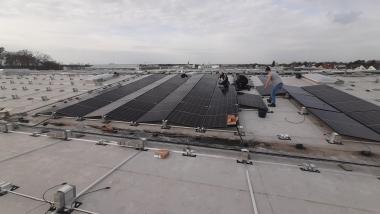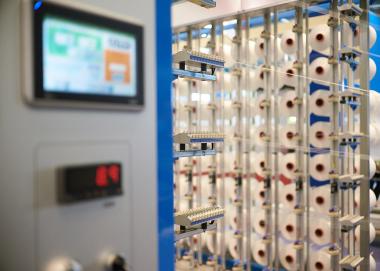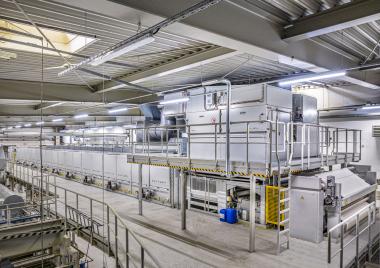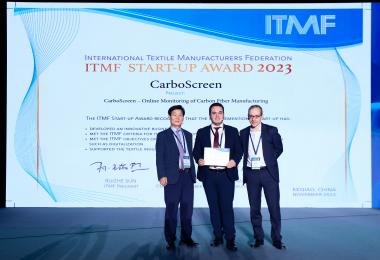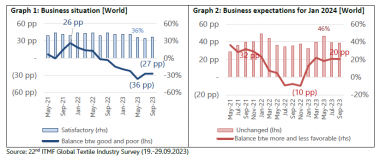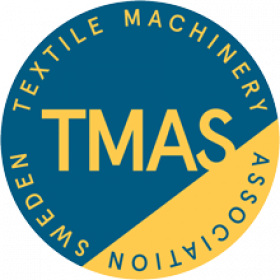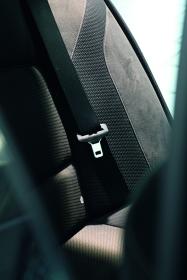TMAS: Microfactory for filter bags in Sweden
ACG Kinna Automatic and ACG Nyström – members of TMAS, the Swedish textile machinery association – have delivered the first microfactory for the production of fully finished filter bags to an international filtration industry customer, in cooperation with JUKI Central Europe.
The microfactory’s configuration is based on two separate interconnecting modules – the Smart Filter Line (SFL) and the Filtermaster 2.0. The SFL handles the fabric feeding from rolls and its folding prior to seam construction, which can either be by automatic sewing, welding or with sewing and taping, depending on specifications. Very rapid changeover of the modular seaming methods can be achieved during product changes. The specific size of the now fully-tubular fabric is then precisely cut to size for each individual unit and further folded ready to be fed into the Filtermaster 2.0. The Filtermaster 2.0 then automatically attaches the reinforcement, bottom and snap rings onto the filter tube with a second Juki sewing head on a robotic arm, to form the fully finished filter bag ready for packaging.
Filter bags are employed in a wide range of industrial processes and while they may be largely under the radar as products, they represent a pretty significant percentage of overall technical textiles production.
They are used in foundries, smelters, incinerators, asphalt plants and energy production plants. Other key manufacturing fields – often where dust is generated – include the production of timber, textiles, composites, waste handling and minerals, in addition to chemicals, food production, pharmaceuticals, electronics and agriculture.
As a further example of the scale of the industry and the high volumes of fabrics involved, one supplier has delivered a single order of 30,000 filter bags to be used for flue gas cleaning at a European power plant. The bags can also be anywhere up to twelve metres in length and frequently have to be replaced.
Textile Machinery Association of Sweden






